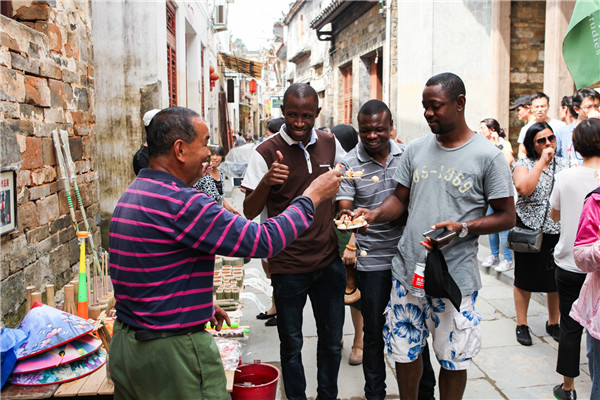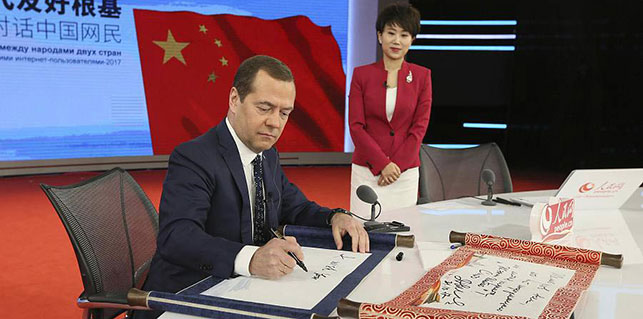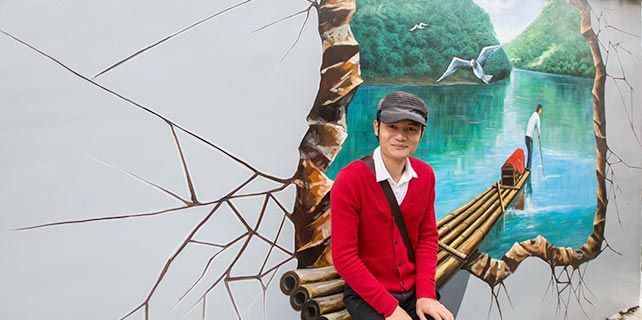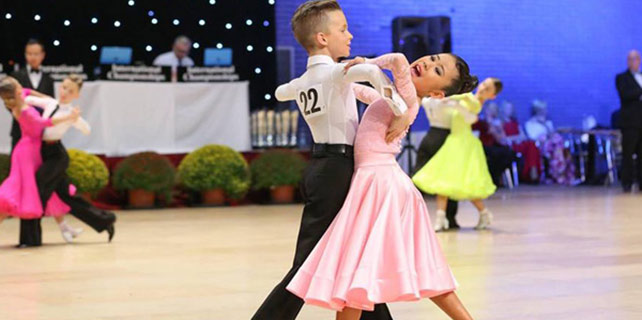Program brings Sinologists closer to China
 |
|
Nigerian Tochukwu Innocent Okeke (right) shopping for souvenirs in Wuyuan, Jiangxi province. [Photo by Lan Jian/For China Daily] |
Many years ago, Bulgarians knew little about China and they had limited access to information about the country. Tsoncheva's parents, who were born in the middle of 20th century, never visited China but they have been interested in Chinese culture and read books about China.
She recalls that when she first heard a Bulgarian speaking Chinese in university, it sounded different from any other language she had heard before.
"It was like a song. I liked it at once and from that time on I was determined to speak it at least as good as that," she says.
After studying Chinese in Bulgaria for four years, she came to the Beijing Language and Culture University in 2001 for a one-year program to further her Chinese.
"China is changing rapidly. Thanks to globalization, we're learning from each other's cultures in a dynamic process that also changes us," she says.
"I'm trying to transfer my endless curiosity and love for China and the Chinese language to all my students, making them eager to learn more and expand their worldview."
Ana Jovanovic couldn't agree more.
"Every time I come to China, I see a lot of changes because China has made developments in every field," says Jovanovic, docent at the faculty of philology, University of Belgrade, Serbia.
"Many foreigners are interested in traditional Chinese art and music. In Serbia, there are more performances today by Chinese performers and music troupes (than years before). It's great to see these shows outside of China."
Jiangxi boasts various traditional operas, and during her stay in the province, she enjoyed an opera about the legend of the White Snake-a love story between a man and the spirit of a snake.
"It's amazing for us to see the local operas and know about the local culture via the field trip to villages," says Jovanovic, who has translated two books by Nobel Prize laureate Mo Yan into Serbian.
According to her, from the 1950s to 1970s, Chinese novels, including works of Lu Xun (1881-1936), were translated from intermediate languages such as English and French. But starting from the 1980s, some Chinese novels were translated directly from Chinese.


















